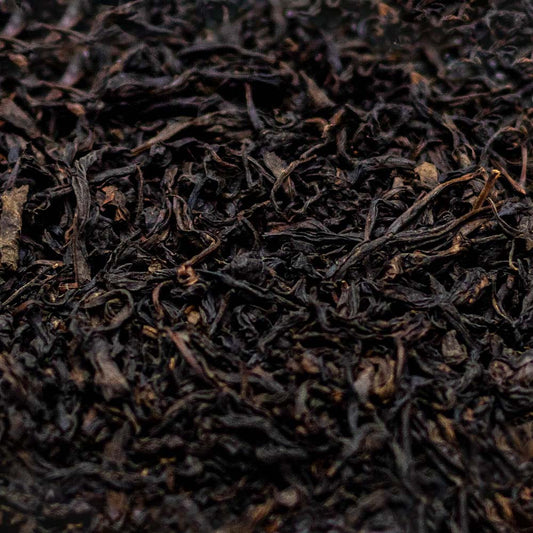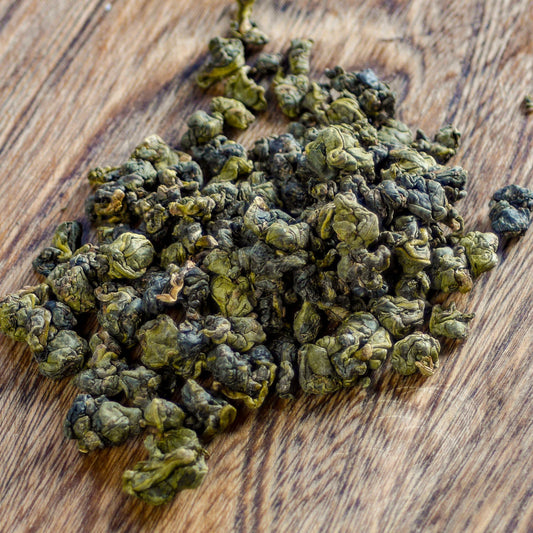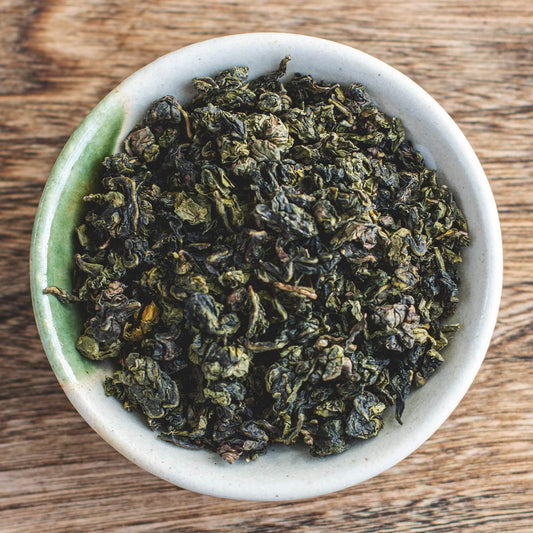Loose Leaf Oolong Tea
Oolong tea falls artfully between black tea and green tea. It is carefully crafted to begin the oxidation process that characterises black teas, but skilfully controlled to release the floral and fruity aromas of the leaf before the richer tannins are revealed... Learn more
Shop 6 RTC Loose Leaf Oolong Tea Products
-
Chinese Tie Guan Yin Oolong
17 reviewsRegular price From €8,95Regular price€0,00 €0,12 per cup€0,00Sale price From €8,95 -
Da Hong Pao Oolong
13 reviewsRegular price €15,95Regular price€0,00 €0,43 per cup -

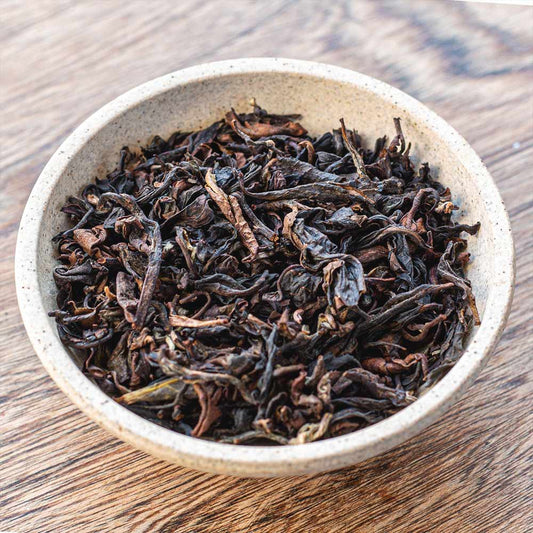 Sold out
Sold outRare Pipachá Oolong
11 reviewsRegular price €22,95Regular price€0,00 €0,51 per cup -
New Zealand Waikato Oolong
12 reviewsRegular price €26,95Regular price€0,00 €0,36 per cup -
21st Century Afternoon Tea
1 reviewRegular price €18,95Regular price€0,00 €0,59 per cup€0,00Sale price €18,95 -

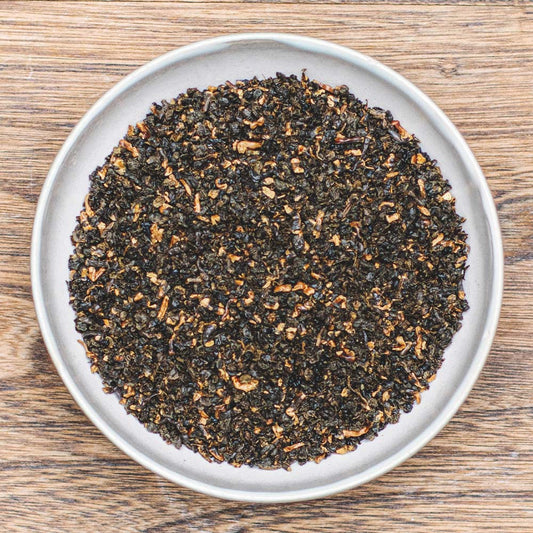 Sold out
Sold outIced Sunset Oolong
Regular price €18,95Regular price€0,00 €0,57 per cup
To compare oolong tea vs green tea, the flavour is deeper and more complex. Compared to a black tea, oolong benefits from less astringency, and softer, smoother flavours.
Different styles of loose leaf oolong tea can vary dramatically in flavour, ranging from the fruity notes and honeyed aroma of the Iron Goddess of Mercy Tieguanyin, to the silky sweetness of Milk oolong and the deep, rich and biscuity taste of the Big Red Robe Da Hong Pao.
What is the flavour profile of oolong tea?
Each oolong has a unique flavour profile. Just as white wines differ wildly, from the sweet honeyed flavours of a particular Reisling to a bone dry Alberino, oolongs cannot be easily categorised.
What’s more - each infusion of loose leaf oolong tea reveals different flavours. A good oolong will typically give six infusions from the same leaves. The flavour will develop and change with each steep.
Oolong tea is partially oxidised - and the level of oxidation is a good indicator of flavour. Low oxidation teas are greener and sweeter - like our Chinese Iron Goddess of Mercy oolong and Golden Lily Milk oolong. Sunset Oolong from Taiwan and our New Zealand oolong from Waikato are oxidised further, revealing richer, tropical fruit notes. Da Hong Pao is the most oxidised and has the richest flavour profile. Dark amber in colour with notes of nutty chocolate, and a rounded, biscuity aroma like a vintage champagne.
How to choose between types of oolong tea?
All our oolong teas are loose leaf and handcrafted by teamasters, not industrial machines. They are painstakingly crafted by skilled men and women who work organically without pesticides and herbicides. They have been carefully chosen to be the most delicious oolong teas from around the world that we can find. They are all good, but the flavour profiles of the leaves vary tremendously.
Please read the flavour notes on each oolong tea page to help choose the teas that you will most enjoy.
Do I need special teaware to brew oolong tea?
You can brew oolong tea in a normal loose leaf teapot or infuser (we recommend the Rare Tea Glass Teapot), or for a more traditional approach, choose an authentic Gaiwan Teapot.
You can view our guide on how to brew oolong tea here.
How many times can loose leaf oolong tea be brewed?
You can brew our oolong tea at least six times. If you infuse with care, and dont over steep, the leaves will reveal great subtleties of flavour, getting better with each infusion until the leaves are exhausted.
In China there is a saying about oolong tea, told by an old tea master to our founder and CEO Henrietta Lovell, on one of her first tea trips to China in the late 1990s:
The first infusion is for your enemies (this is the quick "wash" you give the leaves to help them open out before infusing).
The second infusion is for your servant.
The third infusion is for your wife.
The fourth infusion is for your mistress.
The fifth (the best) is for your business partner (because business comes before pleasure).
The sixth you keep for yourself.
Where should I store loose leaf oolong tea?
Oolong tea should be stored in a sealed container such as a tea caddy. It is essential it is kept airtight. Make sure it's stored away from heat, in a cool and dry place, with a fairly consistent temperature.
Does oolong tea contain caffeine?
All oolong tea contains caffeine. The exact amount can differ per batch and harvest - like the amount of sugar in grapes.
How does oolong tea compare to green tea?
The difference between oolong and green tea is the way it is processed. Oolong tea is partially oxidised to develop deeper, more complex flavours from the leaf. It is also often picked later in the spring season than green tea.
Learn more about oolong tea here.





